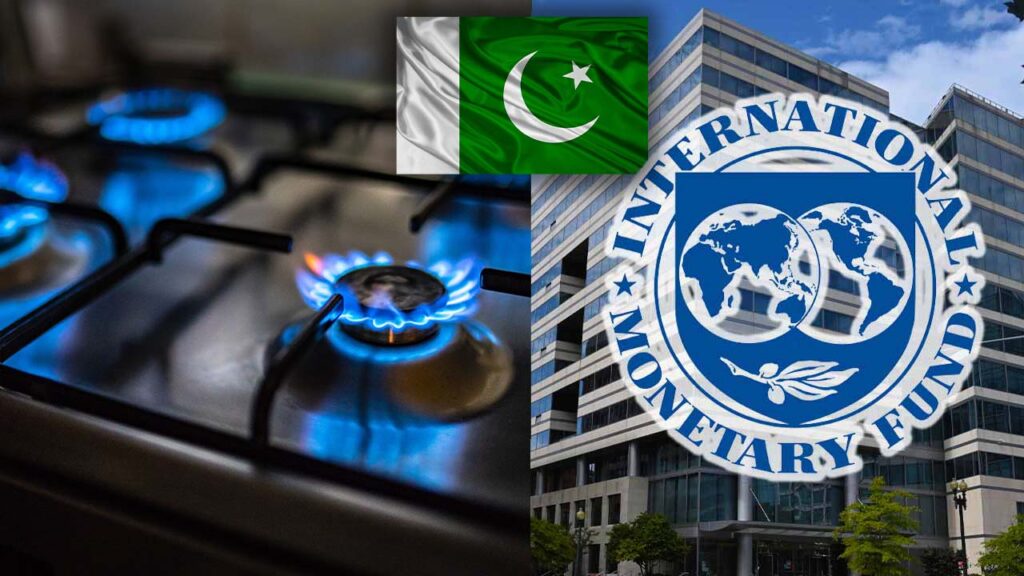LAHORE: In a recent update, the International Monetary Fund (IMF) has predicted that the gas tariff increase implemented on November 1, 2023, will contribute to a rise in headline inflation over the coming months.
The global financial institution is recommending a subsequent surge in gas tariffs in line with the determination by the Oil and Gas Regulatory Authority (OGRA) for the period from December 2023 to February 15, 2024.
In its release on Saturday, addressing the First Review Under the Stand-by Arrangement, Requests for Waivers of Applicability of Performance Criteria, Modification of Performance Criteria, and Re-phasing of Access—Press Release; Staff Report; and Statement by the Executive Director for Pakistan, the IMF highlighted the need for ongoing efforts in the gas sector.
Despite a general moderation in inflation since June, attributed to easing food and energy prices, the IMF projects that the headline Consumer Price Index (CPI) will average 24 per cent in fiscal year 2024.
The gas tariff increase in November is expected to contribute to this headline inflation, but gradual declines are anticipated due to lower core inflation and recent movements in commodity prices. The IMF revised year-end inflation estimates to 18.5 and 9 per cent for fiscal year 2024 and fiscal year 2025, respectively.
The IMF emphasized the necessity for additional measures in the gas sector, including the consistent implementation of semi-annual gas tariff adjustments within the prescribed 40-day window.
The institution recommended the phasing out of captive power usage, establishing a level playing field among non-household consumers, and formalizing a plan for reducing the circular debt stock.
Furthermore, the IMF urged the government to continue safeguarding vulnerable segments through secured gas tariff slabs until an effective targeted BISP scheme can replace them.
The report underscored a significant increase in the circular debt of the gas sector, reaching an estimated Rs2084 billion (2.5 per cent of GDP) at the end of fiscal year 2023.
In response to the IMF’s concerns, the government initiated crucial reforms supported by the World Bank to generate more cash, reduce circular debt, and facilitate gas companies’ infrastructure investments while minimizing unaccounted for gas (UFG) losses.
Notably, end-user gas prices were updated in February 2023, with a further adjustment taking effect on November 1, 2023.
In commitment to OGRA’s scheduled semi-annual gas price adjustment expected for December 2023, the government pledged to implement the notification within the mandated 40-day window, ending on February 15, 2024.
Any price adjustments will maintain the current progressive slab structure for domestic consumers, protecting vulnerable households, while also aiming to reduce cross-subsidies across industrial and commercial users.
The government is set to advise OGRA within 40 days to enable the automatic notification of semi-annual gas price determinations, aligning with the 2022 Amendment to the 2002 OGRA Ordinance. This includes gradually moving towards cost-recovery prices for the fertilizer sector and equalizing rates between export and non-export industries by March 2024.


